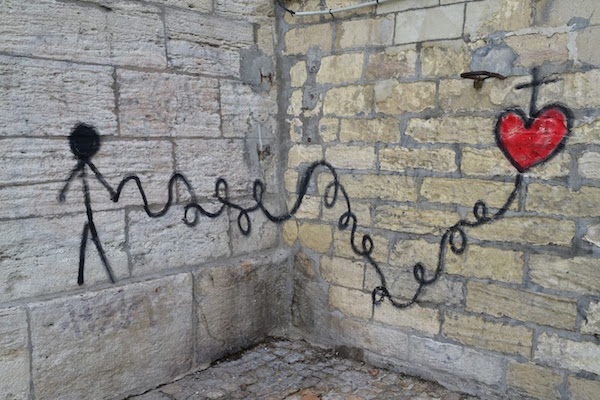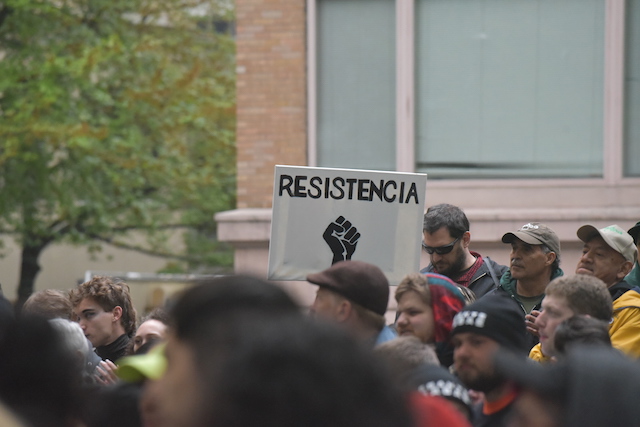
Story and photos by Pete Shaw
A year ago, as I began composing our Thanksgiving article, I was in the pits. I was in the middle of a 4 month bout with a foot infection that found me largely lying on the couch, keeping the foot elevated, and feeling frustrated at not being able to take much of a part in the action on the street in the aftermath of the presidential election. But putting together that list of gratitude for the work of people and groups whom we at the Portland Occupier had covered helped cheer me up. It reminded me that while the official Thanksgiving celebrates white supremacist colonialism and imperialism–and all the bloodshed and brutality that go along with it–while using nice language to paper over those sins, there truly is so much to be thankful for.
I was finally able to put a shoe around my foot and get out to do things in January. While I had other limitations not worth discussing here, but which kept me from covering as much as I would have liked, it has been another good year–well 10 months–of writing about the good and great work being done by good and great people and organizations. So in no particular order…
I suppose the overarching news this year has been the rise in overt white supremacist groups, or perhaps more accurately, white supremacist groups feeling confident enough to display their overt hatred. Considering Donald Trump’s rhetoric has been nothing less than a call for those groups to come out of the woodwork, it was no surprise to see white supremacist rallies in Portland. But the rallies were also attended by people protesting these white supremacists, vastly outnumbering them. By the time one of those rallies was held in early September, only about 20 white supremacists dared show up. Of course, the police protected them, as they did at other rallies–including one in April attended by Jeremy Christian, who not long after murdered two people on a MAX train after harassing two young Black women he believed were Muslims.
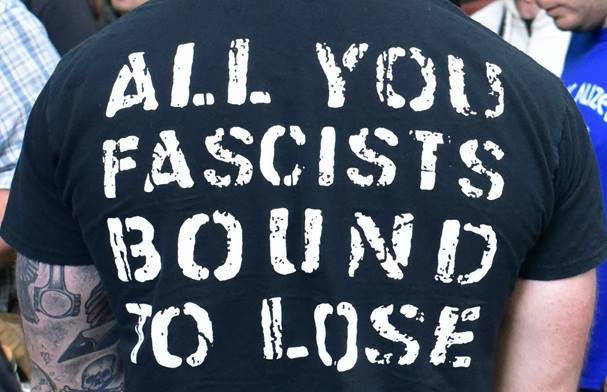
There were disagreements among the various anti-fascist groups, with many people expressing opposition to Antifa, seemingly taking their cue from the corporate media which often created a false equivalency between it and the white supremacists. At two of the rallies I attended, Antifa was separated from the other anti-fascist groups. I talked with quite a few Antifa folks, and spent a good amount of time milling around the areas they were in at those events. They were pretty much everything I expected: generally nice people who were understandably concerned about the rising tide of fascism in the country. They were smart and discerning people who were willing to put their bodies on the line to fight white supremacists, especially at these rallies that were nothing less than recruiting drives. Thank you to everyone who chose to stand up against white supremacy, and more importantly, thank you for the organizing against white supremacy you will continue doing in the coming year.
The first event I was able to attend after getting off the couch was a reading by Prisca Dorca Mojica Rodriguez as part of the Momentum Alliance’s Brown Girl Hour. Mojica Rodriguez’s words are lively enough on the page, but spoken, they sparkled. Defiant, sad, humorous, insightful, and ultimately uplifting, Mojica Rodriguez encouraged everyone in the audience–nearly all of them Latina–to tell their own stories and not let others do it for them. That may seem a self-evident truth, but Mojica Rodriguez’s life and work bear witness to how truths that should be self-evident are often obscured by a tangled web of rules, customs, and other systems that uphold white supremacy and its accompanying oppressive systems such as patriarchy. Getting out from underneath it, Mojica Rodriguez’s writing shows, is extremely difficult, requiring great mettle.
That point was brought home at the beginning of the presentation when the person introducing Mojica Rodriguez noted that while the room the event took place in was a safe space, once outside of it, people would be back in a world that elected Donald Trump and his loud and brash white supremacy. It was a deeply moving night, but I would be lying to you if I told you I did not laugh a lot. Mojica Rodriguez is a great storyteller. Don’t take my word for it. Read for yourself. And tell your story.
Thank you Prisca for your work, and thank you Momentum Alliance for bringing Mojica Rodriguez and her story to Portland.
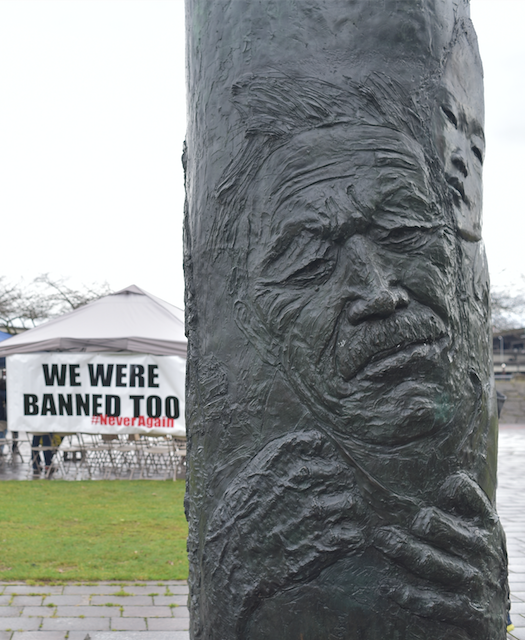
Stories are important. In February I attended an event in memory of the 75th anniversary of President Franklin Delano Roosevelt’s signing of Executive Order 9066 which resulted in the forced incarceration of over 120,000 people of Japanese ancestry. It was shameful, and Trump’s Muslim ban that he promulgated during the early days of his administration bore a dark resemblance to it. Almost 100 people gathered at the Japanese American Historical Plaza in Waterfront Park to mark the day. Some told stories about their lives before, during, and after being forcibly incarcerated. Others talked about family members’ experiences. Younger folks talked about how they, some generations removed, made their own way, sometimes in violation of their elders’ desire that they not rock any boats. It was, as A’misa Chiu stated, a “radical act of remembering.” Thank you to all who attended, and to all who commit radical acts of remembering.
I remember during the 1980s, as the US declared war on the Roman Catholic Church in Central America, a Sanctuary Movement took hold in this country to provide respite for people fleeing the US supported Dirty Wars. In late February, at Augustana Lutheran Church, a large gathering of faith and justice groups expanded the New Sanctuary Movement. That new form of the movement began during the George W. Bush Administration, but the Trump Administration’s signaling of an even more extensive crackdown on people without documentation than had been seen under Presidents W. Bush and Barack Obama pushed these groups to organize even more aggressively to provide sanctuary, making sure people without documentation and their families would be protected and kept together. Prior to Trump’s election, about 400 faith communities throughout the country had declared themselves sanctuaries for people without documentation being pursued and persecuted by the Immigration and Customs Enforcement Agency (ICE). Since Trump came to power, that number has doubled. Thank you to all groups involved in this New Sanctuary Movement.
Much of the resistance to the Trump Administration’s anti-immigrant policies is being led by immigrants without documentation. I cannot adequately express the great courage that must take. I probably can never truly understand it. All I can do is say thank you for having that immensely inspiring fortitude. A thousand times. And a thousand times more thanks for demanding that Portland, which Mayor Ted Wheeler tells us is a sanctuary city, actually act like one instead of just paying lip service to the idea.
For years Enlace has been working to get the City to divest from its bond holdings in private prisons. Other groups have been pressuring it to divest from companies such as Caterpillar, Nestle, and Wells Fargo because of their horrible human rights and environmental records. A City Council session in early April looked to be just another one where people pushing these divestments would testify and then go back to further organizing until their goals were met. And then, seemingly out of nowhere, the City council unanimously voted to divest from all its bond holdings. Commissioners Nick Fish and Dan Saltzman noted they were frustrated at having constantly to deal with the issue, and Commissioner Chloe Eudaly had long been on board with the targeted divestments. Of course, it was not out of nowhere. It was a fine example of what committed, solid organizing can do. Thank you to everyone who kept pushing and pushing and pushing. And thank you for the pushing you will continue doing.
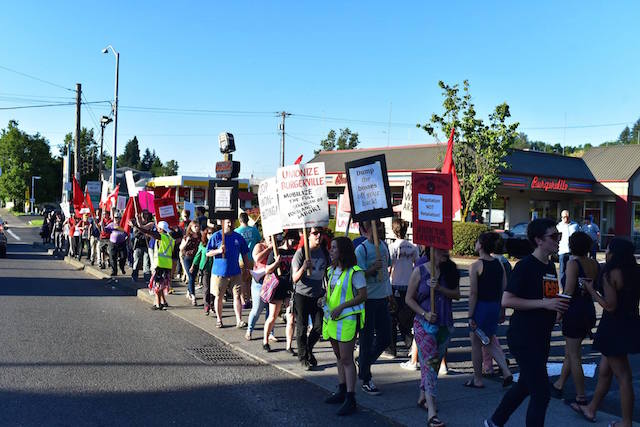
In April 2016, the workers at Burgerville formed a union with the help of the Industrial Workers of the World. Since then, the Burgerville Workers Union (BWVU) has been gathering members and community supporters as it insists management treat them with dignity on the job. The BWVU’s demands include a $5 per hour increase for hourly wage workers; affordable, quality healthcare; fair and consistent scheduling; paid maternity and paternity leave; and a safe and healthy workplace. At various rallies they have been joined by Longshoremen, Carpenters, the Community Alliance of Tenants, Jobs with Justice, and members of the Portland Tenants United, among others. Thank you all, and thank you to those of you who will soon join in solidarity with the BWVU.
Quanice Hayes, a young Black man, was murdered by Portland Police officer Andrew Hearst in February. How many times will we read that basic sentence with different names? As seems to be policy, the Portland police trotted out a litany of reasons as to why Hayes deserved to die. At a vigil held soon after Hayes’s murder, family members, Friends, and members of the community showed up to provide support and demand accountability. Hearst, as with so many police before him who have murdered people, will not be held culpable. But still people continue organizing for and demanding police accountability, and even, abolition. Thank you for your persistent demands for justice.
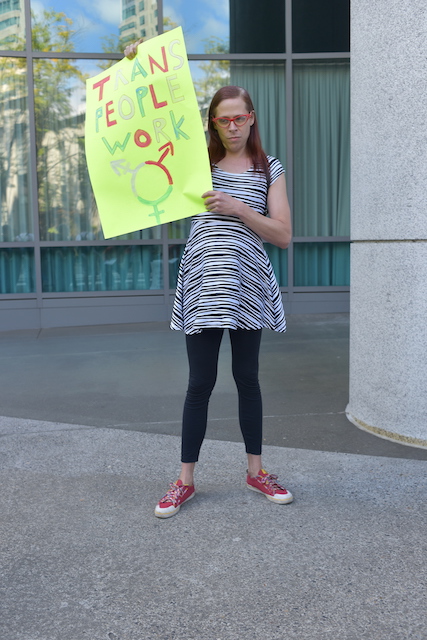
Photo by Pete Shaw
In late August a group of transgender folks and transgender rights activists attempted to deliver a letter to Oregon Commissioner of Labor and Industries Brad Avakian. That letter laid out the steps transgender people insisted the Bureau of Labor and Industries (BOLI) take to enact protections for transgender people and to facilitate ending employment discrimination against them. Among the demands were that BOLI ensure equal treatment in hiring, retention and promotion for transgender workers through stepped up enforcement of anti-discrimination law; hire specialists in transgender oppression, employment discrimination, and protection; establish a training and placement program to secure employment for transgender workers; and establish a training program for employers on transgender oppression, discrimination, and protection. After a needless and silly delay, they were finally able to deliver the letter to Avakian. It should be simple: protect transgender workers from discrimination. Instead, the first step–the letter delivery–took nearly two hours. Thank you to everyone who helped deliver the letter and to all transgender workers and their allies demanding an end to discrimination in the workplace.
And my Friend Alyssa Pagan was back in town to help lead the charge. I’ll encapsulate the joy I felt by saying thank you for the hug.
When someone I know through activism leaves town, I try and write something about them to let them know how much I and many others appreciate them and their work. I wrestled with writing one for jamallah bourdon of the All-African People’s Revolutionary Party (A-APRP) who a few months ago returned to Brooklyn, New York. I was not sure she would appreciate the attention, but I now feel I made a mistake. She deserves praise.
One morning at the A-APRP’s free breakfast and education program, I started serving food to the students, but jamallah asked I not do so. I figured it would be good for the kids to see a guy serving the food instead of a woman (and I should note here that all members of the A-APRP who took part in the program served food to the children). When I mentioned this to jamallah, she kindly told me that it was important these young African people see other African people in that position, although she said it better than I just wrote it. Not just for that moment, but many others, I will always remember jamallah as a gentle dispenser of Wisdom deeply engaged in a fierce quest for a more just world. Thank you jamallah, and the best of luck in all you do.
Although I never say it enough, thank you to my editors and the fine photographers at this publication. There is a distinct difference between a photographer and someone who takes photos. I am the latter–which I write as a fact, not a derogation–and the articles we publish are better when Bette Lee’s and Kendall’s work graces them. And as always, it is the editors who make the final copy superior to the draft. Teamwork makes most things better.
Of course, thank you dear readers. I like to think most of you are either reading about things you have partaken in, will partake in, or will use inspiringly when doing your own organizing work. Whichever of those it may be, thank you for giving me things about which to write.
Penultimately, thanks to my Friends and family. I Love you all.
And as always, my thanks, Love, and all else to my better 99%, my Bestica. After all this time when you call my name, my heart still skips a beat. I Love you.
